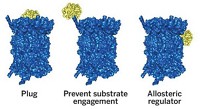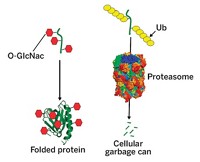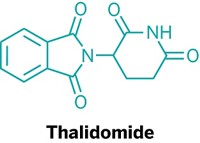Advertisement
Grab your lab coat. Let's get started
Welcome!
Welcome!
Create an account below to get 6 C&EN articles per month, receive newsletters and more - all free.
It seems this is your first time logging in online. Please enter the following information to continue.
As an ACS member you automatically get access to this site. All we need is few more details to create your reading experience.
Not you? Sign in with a different account.
Not you? Sign in with a different account.
ERROR 1
ERROR 1
ERROR 2
ERROR 2
ERROR 2
ERROR 2
ERROR 2
Password and Confirm password must match.
If you have an ACS member number, please enter it here so we can link this account to your membership. (optional)
ERROR 2
ACS values your privacy. By submitting your information, you are gaining access to C&EN and subscribing to our weekly newsletter. We use the information you provide to make your reading experience better, and we will never sell your data to third party members.
Biological Chemistry
Nucleotides block cell death
July 3, 2006
| A version of this story appeared in
Volume 84, Issue 27
They're already the buildingblocks of DNA and the universal currency for cellular energy. Now there's another reason to keep nucleotides on your radar screen: New research has shown that these sugar derivatives also play an essential role in the prevention of cell death. It turns out that nucleotides prevent the association of cytochrome c with another protein called Apaf-1. Preventing this association inhibits the formation of a protein complex called the "death wheel" that activates a cell's quick demise, a process known as apoptosis (Cell 2006, 125, 1333). Dhyan Chandra and his colleagues at the University of Texas M.D. Anderson Cancer Center found that negatively charged nucleotides inhibit apoptosis by interacting with several positively charged lysine residues on cytochrome c. More than demonstrating another raison d'??tre for nucleotides, this work impacts cancer drug development. Many researchers try to kill cancer by inducing apoptosis, says Chandra. "Drug developers will have to make sure nucleotides are at a low level for their apoptosis strategies to work."





Join the conversation
Contact the reporter
Submit a Letter to the Editor for publication
Engage with us on Twitter